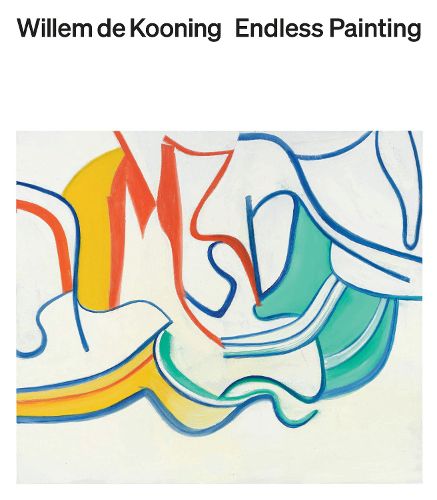Readings Newsletter
Become a Readings Member to make your shopping experience even easier.
Sign in or sign up for free!
You’re not far away from qualifying for FREE standard shipping within Australia
You’ve qualified for FREE standard shipping within Australia
The cart is loading…






Published on the occasion of Willem de Kooning: Endless Painting, 555 West 24th St, New York, an exhibition organized with the support of the Willem de Kooning Foundation and curated by Cecilia Alemani, Donald R. Mullen, Jr. Director & Chief Curator of High Line Art. The book documents paintings by the artist dating from 1944 through 1986 and two sculptures, with a dedicated plates section featuring the works in the exhibition, installation shots, and contextual images of the artist. Endless Painting is the sixth solo exhibition of de Kooning's work presented by Gagosian, with the first organized in 1987.
A pioneering figure of the postwar era, de Kooning probed the expressive potential of color, line, and space and continuously challenged the boundaries between figuration and abstraction. Through the considered placement of late paintings the exhibition foregrounds visual motifs that recurred throughout de Kooning's career. This approach reflects Alemani's close investigation of paintings from the 1980s in which she identified an expansive repertoire of human forms-elbows, knees, mouths, eyes-that can be traced as far back as the artist's works of the 1930s and 1940s that drew on Cubism and Surrealism.
De Kooning often reworked canvases, reincorporating passages from earlier compositions by tracing shapes he wanted to preserve onto vellum, and even changing their orientation multiple times during the painting's gestation. It was through revisiting and revising his compositions that he developed a consistent but flexible vocabulary of color and gesture rooted in figuration. "A restless explorer of the canvas, de Kooning never stopped interrogating the possibilities of what painting could be," Alemani notes. The exhibition's title, Endless Painting, references this enduring, ever-evolving visual language and the artist's professed decision to "just stop" rather than formally finish paintings. Alemani and John Elderfield explore these concepts in the book and expand on the many possible interpretations of de Kooning's work.
$9.00 standard shipping within Australia
FREE standard shipping within Australia for orders over $100.00
Express & International shipping calculated at checkout
Stock availability can be subject to change without notice. We recommend calling the shop or contacting our online team to check availability of low stock items. Please see our Shopping Online page for more details.
Published on the occasion of Willem de Kooning: Endless Painting, 555 West 24th St, New York, an exhibition organized with the support of the Willem de Kooning Foundation and curated by Cecilia Alemani, Donald R. Mullen, Jr. Director & Chief Curator of High Line Art. The book documents paintings by the artist dating from 1944 through 1986 and two sculptures, with a dedicated plates section featuring the works in the exhibition, installation shots, and contextual images of the artist. Endless Painting is the sixth solo exhibition of de Kooning's work presented by Gagosian, with the first organized in 1987.
A pioneering figure of the postwar era, de Kooning probed the expressive potential of color, line, and space and continuously challenged the boundaries between figuration and abstraction. Through the considered placement of late paintings the exhibition foregrounds visual motifs that recurred throughout de Kooning's career. This approach reflects Alemani's close investigation of paintings from the 1980s in which she identified an expansive repertoire of human forms-elbows, knees, mouths, eyes-that can be traced as far back as the artist's works of the 1930s and 1940s that drew on Cubism and Surrealism.
De Kooning often reworked canvases, reincorporating passages from earlier compositions by tracing shapes he wanted to preserve onto vellum, and even changing their orientation multiple times during the painting's gestation. It was through revisiting and revising his compositions that he developed a consistent but flexible vocabulary of color and gesture rooted in figuration. "A restless explorer of the canvas, de Kooning never stopped interrogating the possibilities of what painting could be," Alemani notes. The exhibition's title, Endless Painting, references this enduring, ever-evolving visual language and the artist's professed decision to "just stop" rather than formally finish paintings. Alemani and John Elderfield explore these concepts in the book and expand on the many possible interpretations of de Kooning's work.